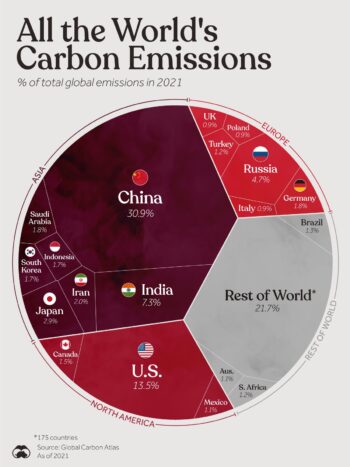123개국 재생에너지 3배로 확대 서명
서명 거부국이 절반 배출, 반쪽 결실 COP28

기억하자 이 나라들을.
Albania Andorra Angola Antigua and Barbuda Argentina Armenia Australia Austria Azerbaijan Bahamas Bangladesh Barbados Belgium Belize Benin Bhutan Bosnia Herzegovina Brazil Brunei Darussalam Bulgaria Burkina Faso Burundi Canada Chad Chile Colombia Comoros Costa Rica Cote d’Ivoire Croatia Cuba Cyprus Czechia Denmark Dominican Republic El Salvador Estonia Eswatini Ethiopia Fiji EU Finland France Gambia (the) Georgia Germany Ghana Greece Grenada Guatemala Guinea Hungary Iceland Ireland Italy Jamaica Japan Jordan Kenya Kiribati Kosovo Kyrgyzstan Latvia Lebanon Lesotho Liechtenstein Lithuania Luxembourg Malawi Malaysia Maldives Mali Malta Mexico Micronesia Moldova Monaco Montenegro Morocco Mozambique Namibia Nauru Netherlands New Zealand Nicaragua Nigeria North Macedonia Norway Oman Papua New Guinea Paraguay Poland Portugal Romania Rwanda San Marino Senegal Serbia Seychelles Sierra Leone Singapore Slovakia Slovenia Somalia Republic of Korea Spain Sweden Switzerland Syria Tajikistan Thailand Togo Tunisia UAE Ukraine United Kingdom USA Uruguay Uzbekistan Vanuatu Yemen Zambia Zimbabwe
이 123개국 이름들을 기억하자는 의미에서 기록으로 남겼다. 아랍에미리트(UAE) 두바이에서 열린 제 28차 유엔기후변화당사국 총회(COP28)에서 이 나라들은 지구 기온을 1.5도 혹은 2도 상승을 막기 위한 조치를 취하기로 서명을 했다(12월10일 현재). 결의의 내용은 전세계 재생 에너지 발전양을 2030년까지 현재보다 3배로 늘리고 에너지 효율 개선율을 매년 두배로 늘리기로 한 것이다. COP28은 이 합의가 2015년 파리 기후협약 이후 가장 중요한 합의로 내세우고 있다. 그러나 두바이의 선전을 그대로 받아들이기 전에 짚어 보아야 할 또다른 국가들과 현실을 살펴봐야 한다.
이들은 다른 의미에서 반드시 기억해야 할 나라들이다.
중국 인도 러시아 사우디아라비아 이란 인도네시아 남아공 튀르키예 등이다.
현재 탄소배출 20위 안에 있는 국가들이면서 이 조약에는 가입하지 않았다. 중국은 현재 전세계에서 배출되는 탄소의 31%를 내보내 1위에 올라있고 2위 미국(13.5%)에 이어 인도는 7.3%로 3위다. 1위와 3위 국가가 서명을 거부한 것이다.
탄소배출 세계 상위 20위의 국가가 배출하는 탄소는 전체 배출양의 77.4%다. 그 상위 20개국 중 서명을 거부한 8개국이 배출하는 탄소는 세계 탄소배출 양의 49%, 즉 절반이다. 그러니 나머지 123개국이 서명을 한다고 해도 당초의 목표에 크게 못미칠 수 밖에 없다.
그래서인지 COP28 홈페이지에서 서명한 나라들에 대한 정보는 찾기가 매우 어렵고 123개국이 서명했다는 소식만 대문짝 만하게 도배돼 있다. 더구나 서명하지 않는 상위 배출국가들은 일일이 다른 자료들과 대조해야 찾을 수 있었다.
이 국가들은 그 동안 탄소 배출 누적 총량은 미국 유럽 등 선진국이 다 해놓고 이제 와서 우리에게 탄소배출을 하지 말라고 요구하는 것은 받아들일 수 없다는 속 마음을 갖고 있다. 그러나 지금 인류가 당면한 문제는 누구의 과거 책임을 묻고 따질 만큼 한가하지 않다. 2030년까지 탄소배출을 40% 이상 줄이지 못한다면 평균 기온상승 2도 선마저 쉽게 무너질 것이기 때문이다. 그 경우 상대에게 책임을 묻는 행위조차 의미 없는 멸종의 길로 접어들기 때문이다.
세계는 지금 중국과 인도 러시아 등 탄소 대량 배출국들의 결단을 촉구하고 있다. 이들의 책임있는 행동이 없다면 탄소 농도 증가로 인한 재앙은 전 지구인의 몫이 될 것이기 때문이다.
또 서명에 참여한 123개국, 그 중 상위 20개국에 속하는 미국 일본 독일 캐나다 한국 브라질 멕시코 호주 영국 이탈리아 프랑스 폴란드 등의 향후 정책도 눈여겨 봐야 한다. 지금까지 대부분의 경우 강제력이 없는 선언은 감시자의 눈과 압력이 ‘종이 쪼가리’에 불과하기 때문이다. 특히 한국은 재생에너지 확장에 큰 장애가 되는 것이 현 정부라는 사실은 무엇을 말하고 있을까?
정필립(토론토 생태희망연대)
Albania Andorra Angola Antigua and Barbuda Argentina Armenia Australia Austria Azerbaijan Bahamas Bangladesh Barbados Belgium Belize Benin Bhutan Bosnia Herzegovina Brazil Brunei Darussalam Bulgaria Burkina Faso Burundi Canada Chad Chile Colombia Comoros Costa Rica Cote d’Ivoire Croatia Cuba Cyprus Czechia Denmark Dominican Republic El Salvador Estonia Eswatini Ethiopia Fiji EU Finland France Gambia (the) Georgia Germany Ghana Greece Grenada Guatemala Guinea Hungary Iceland Ireland Italy Jamaica Japan Jordan Kenya Kiribati Kosovo Kyrgyzstan Latvia Lebanon Lesotho Liechtenstein Lithuania Luxembourg Malawi Malaysia Maldives Mali Malta Mexico Micronesia Moldova Monaco Montenegro Morocco Mozambique Namibia Nauru Netherlands New Zealand Nicaragua Nigeria North Macedonia Norway Oman Papua New Guinea Paraguay Poland Portugal Romania Rwanda San Marino Senegal Serbia Seychelles Sierra Leone Singapore Slovakia Slovenia Somalia Republic of Korea Spain Sweden Switzerland Syria Tajikistan Thailand Togo Tunisia UAE Ukraine United Kingdom USA Uruguay Uzbekistan Vanuatu Yemen Zambia Zimbabwe
The names of these 123 countries are here for the record. At the 28th United Nations Climate Change Conference (COP28) in Dubai, United Arab Emirates (UAE), these countries signed on to take action to keep global temperatures from rising by 1.5 or 2 degrees (as of December 10). The resolution calls for tripling global renewable energy generation by 2030 and doubling the rate of energy efficiency improvements each year. COP28 is touting the agreement as the most significant since the 2015 Paris climate agreement. But before we take Dubai’s propaganda at face value, there are other countries and realities to consider.
These are the countries that should be remembered in a different sense.
They are China, India, Russia, Saudi Arabia, Iran, Indonesia, and South Africa.
They are currently in the top 20 carbon emitters and are not part of the treaty. China is currently in first place with 31% of the world’s carbon emissions, followed by the United States at 13.5% and India at 7.3%. The number one and three countries have refused to sign.
The world’s top 20 emitters account for 77.4% of all carbon emissions. Of those 20, the eight countries that refused to sign account for 49%, or half, of global emissions. So even if the remaining 123 countries signed on, they would still fall far short of the original goal.
That’s why it’s very difficult to find information about the signatories on the COP28 website, and the news that 123 countries have signed is boldly proclaimed. What’s more, the top non-signatories had to be cross-checked with other sources to find the top emitters.
These countries feel that the U.S., Europe, and other industrialized nations have done all the heavy lifting and that it’s unacceptable to ask them to stop emitting carbon. But the problems facing humanity are too big to sit back and wait for someone else to take responsibility for the past. If we don’t reduce carbon emissions by at least 40% by 2030, the 2-degree average temperature increase will be easily breached. In that case, even holding others accountable will be meaningless as we head down the road to extinction.
The world is now calling for decisive action from large carbon emitters like China, India, Russia, and others. Without their responsible behavior, the catastrophe of rising carbon concentrations will be shared by the entire planet.
It will also be interesting to see the future policies of the 123 signatories, the top 20 of which are the United States, Japan, Germany, Canada, South Korea, Brazil, Mexico, Australia, the United Kingdom, Italy, France, and Poland. So far, in most cases, the non-binding declaration has been a “piece of paper” with little scrutiny and pressure. What does it say about South Korea in particular that the current government is a major obstacle to renewable energy expansion?
By Philip Jung (HNET)
